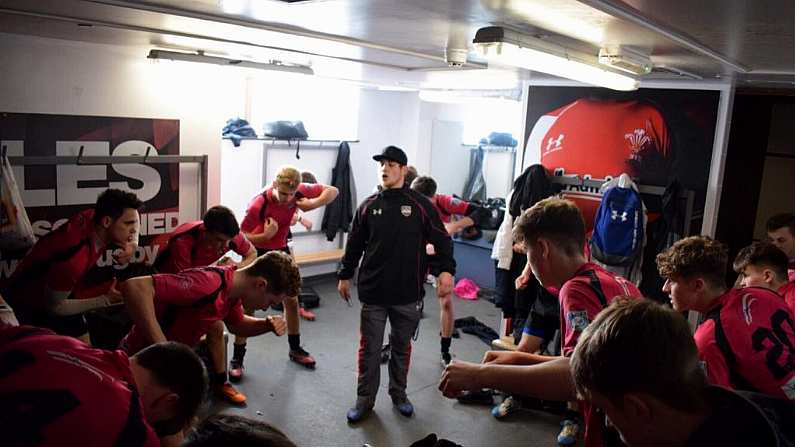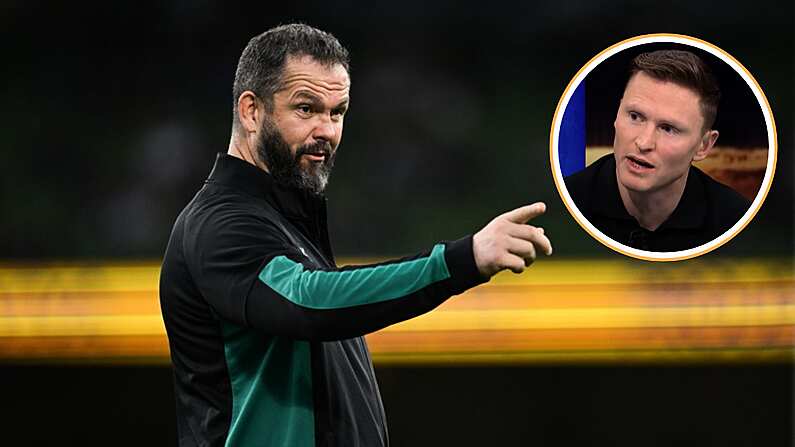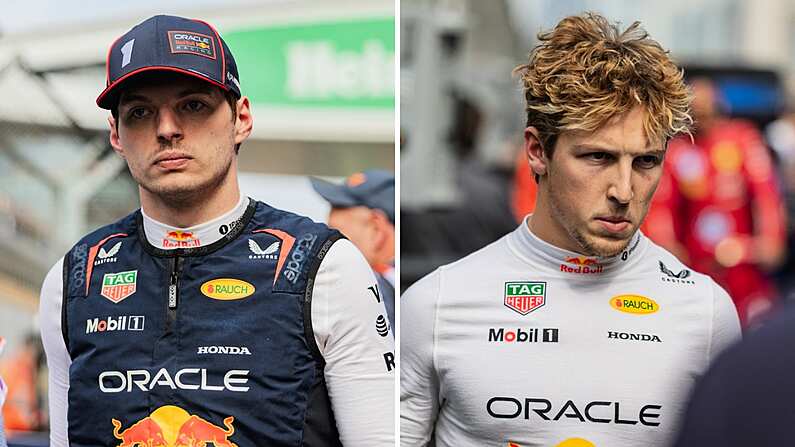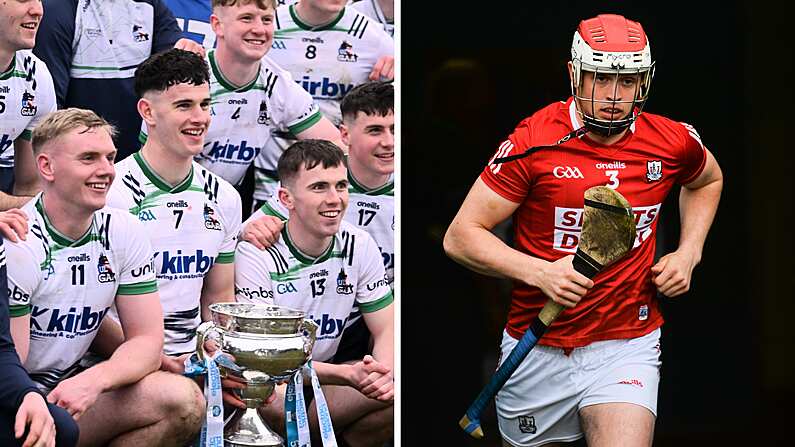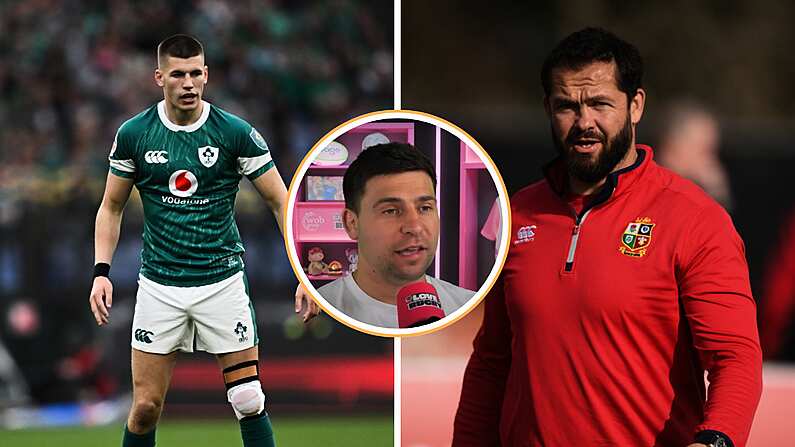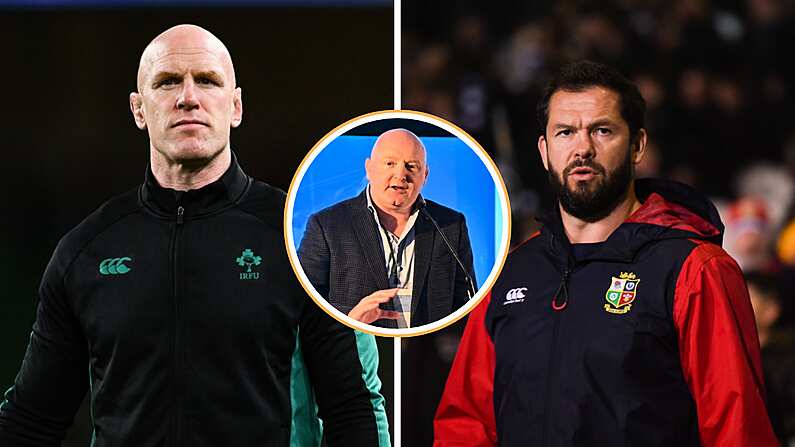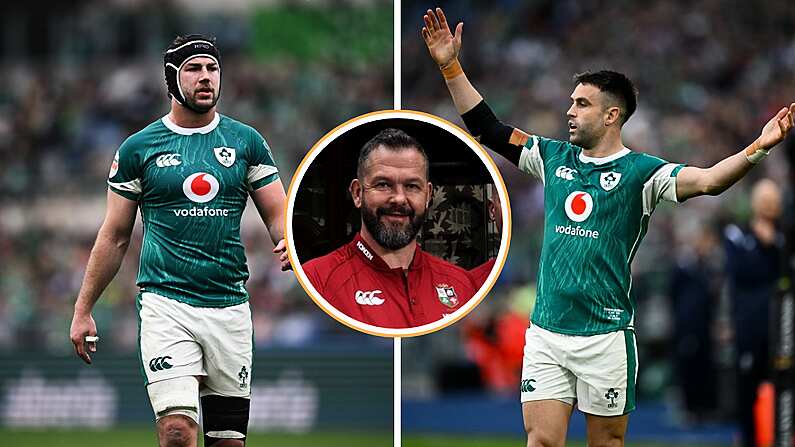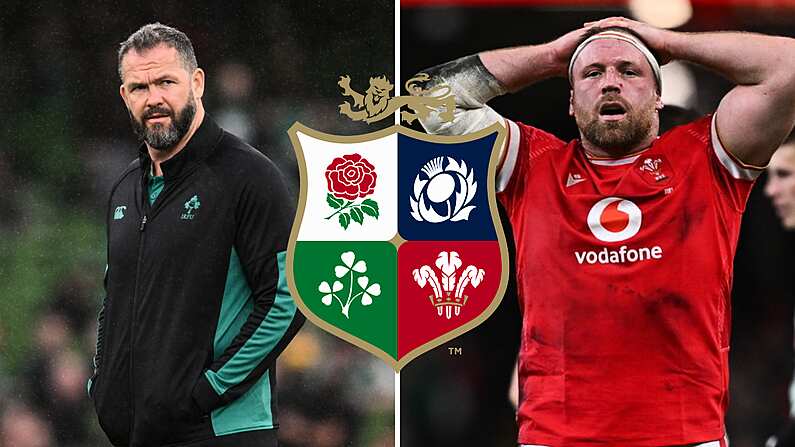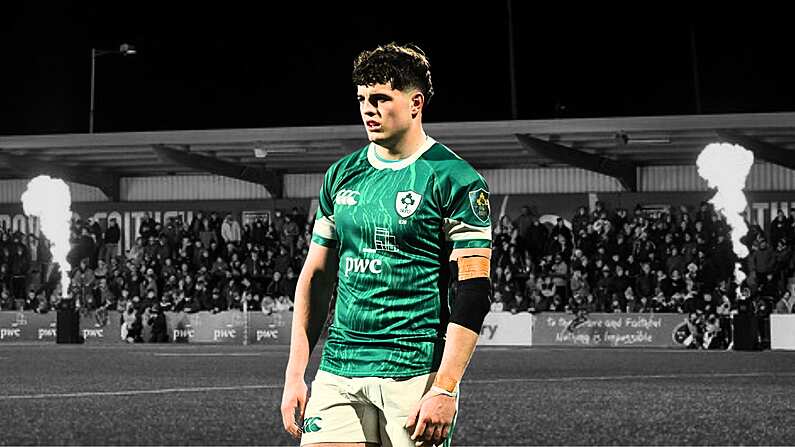"When it comes to punching above their weight, nobody can compete with Munster," wrote Andy Howell of Wales Online a couple of weeks ago, bemoaning the Welsh regions' continental failures relative to that of their Irish counterparts.
On the Sunday prior, the Ospreys were felled by 14-man Stade Francais at the Principality Stadium in their Challenge Cup quarter-final - the same Stade Francais who, prior to their trip to Wales, had lost all 12 of their away games this season.
Ospreys joined the Cardiff Blues in crashing out of the competition in the last eight, with three Gloucester tries in 13 minutes putting paid to the capital club's European aspirations 24 hours beforehand.
Conversely, the same weekend saw Leinster and Munster roar into the final four of Europe's premier competition, annihilating a formidable Wasps outfit and an admittedly shop-worn Toulouse in Dublin and Limerick respectively.
"As for Newport Gwent Dragons," wrote Howell, "they lost against Russian side Enisei-STM and a second-string Worcester Warriors at the group stage, yet, and this is remarkable, are the sole Welsh entity to have reached a European semi-final in the last six years." He maintained that Scarlets' decent Champions Cup campaign was the one saving grace from another otherwise dismal club season.
Where he lost a number of Irish readers was his assertion that both Ospreys and the Blues possess squads of greater quality than that of Munster - on paper, at least. "The likes of Dave Kilcoyne, Donnacha and John Ryan, Jaco Taute and Darren Sweetenham are hard workers and nothing more," he theorised, sparking our thumbs into fervent and furious action.
Blinded by the indignation of having suffered this slight, we perhaps missed the crux of Howell's hypothesis; man versus man, region versus province, Wales' clubs are perennial underachievers in European competition. Since Welsh club rugby's restructure in 2003, Munster alone have reached the European Cup semi-finals the same number of times (8) as the Dragons, Scarlets, Ospreys and Blues combined have made the quarters.
Howell theorised in his column that it is largely brains, not brawn, which perpetually curtails Welsh progress in Europe:
Perhaps some of the coaching in Ireland is better but it always strikes me the big difference when it comes to Europe is psychological. It is about belief.
Change is doubtless required. Indeed, it has already begun in earnest. Somewhat ironically, one of the key figures central to the potential Welsh revolution is a 23-year-old Munsterman.
The youngest man in his role by at least a decade, Darragh McNamara is Director of Rugby at Cardiff's Cowbridge Comprehensive School, where he presides over one of the most prodigious underage rugby systems in Wales. His school, CCS, recently completed a co-educational merger with the larger and more resource-laden Cardiff and Vale College. At last month’s National Sevens Tournament at Rosslyn Park, London, both sets of former rival players amalgamated to finish fourth of 70 sides across Britain - only the second such achievement for a Welsh team in the past two decades.
A former Munster underage prospect himself, and a product of Munster schools rugby powerhouse Christian Brothers College in his native Cork, McNamara has cast a keen eye over the school structures on either side of the Irish Sea.
Masters in Performance Coaching from the University of South Wales in the bag, he's enthralled by his new home's prospective second-coming as a world rugby superpower. By the same token, however, he remains a concerned Irishman; having seen how the other side has begun to conduct business he's wary that, in spite of the recent upsurge in emerging Irish talent across the provinces, we might be left in Wales' rear-view within the next decade.
"If you take the Senior Schools Cup at home," McNamara says, "that's the pinnacle of underage rugby in Ireland."
We have that equivalent in Wales. To put it in perspective, let's say you have Christians and Pres in Munster, Blackrock and Clongowes in Leinster, and so on. They're top sides in Ireland, and they play Senior Cup.
But if you take Coleg Y Cymoed in the Pontypridd region over here, for example.
Since the introduction of the WRU Colleges League, they've been the All Blacks equivalent. Colleges like Cymoed play Munster under-18s and Leinster under-18s - full-on provinces in Ireland. And Cymoed, along with other schools from Wales, are beating our interprovincial sides back home. Even though they're just a school or a college.
Now, to be fair, it might be a pre-season game for Munster or Leinster, and the guys in the underage setups there don't know each other too well at that stage. But at the same time, what Ireland has to offer at interprovincial level is often being brushed aside by a little school or college in Wales. And that's what the Pathway does here.
The bedrock to that very pathway is the aforementioned WRU Colleges League, the newly-formed u18s competition in which McNamara's own school participate. The WRU's introduction of the 'A Licence' to their schools system meant that schools and colleges* could set up officially-recognised rugby academies on par with that of the Blues, Ospreys, Scarlets and Dragons at regional level.
*In Wales, students are in 'school' until they're 16. They then have the option to go to a specialised sixth form 'college' to do their A-levels (the Irish equivalent would be going away to do the Leaving Cert). The WRU Colleges League consists of both schools and colleges.
To be incorporated into the WRU Colleges League and establish such an academy, a school or college must meet a host of criteria.
Firstly, all coaching is conducted by licenced professionals - this as opposed to teachers, which tends be the case in Irish schools rugby. Every institution must have a designated Director of Rugby (McNamara, in his school's case), a designated Head of Strength and Conditioning, and a High Performance gym. They must have have indoor, artificial and grass-based training areas. Their season and training must be periodised. The costs - not just of setup, but for maintenance - are naturally huge, but so too is the entire academy programme.
"So, if you take Munster or Leinster's academy," McNamara says, "We have one of them in our school, basically."
The player pathway that they have here is phenomenal. There are a few little hitches in terms of internal relationships which are hindering it at the moment, but if they had this setup in New Zealand, New Zealand would be even further ahead.
There's national exposure because there's a partnership in place with S4C, which is like the TG4 of Wales. They televise two games a week, which offers serious exposure for players, coaches, and schools. In my role as Director of Rugby, I'm entitled to first-hand contact with the [Cardiff] Blues Regional Pathway Manager, Richard Hodges; with the Ospreys Regional Pathway Manager, Dan Griffiths; with WRU Development Manager, Gethin Watts. We speak on a regular basis, and it's all about moving players through. They'll specify to us the type of player they want, and we sent through players that we think are doing well.
But aside from that clamour of coaches and directors, we also have this thing that the WRU put in place, which is a quarterly athletic testing programme. So the players go up to the Centre of Excellence in the Vale of Glamorgan - all schools - and they do speed testing, aerobic and anaerobic testing, conditioning, jump tests, and much more. They keep a database of literally all the players in Wales. That provides an extra little information package for selectors at under-18 and under-20 international level.
There's also a WRU analysis site. Every player from every team has a login. The WRU send their relevant staff out to every single Colleges League game on a Wednesday. These guys video the games. They then go back up after the game and code these games until 3 or 4 in the morning. And then the next day - on the Thursday - all of the stats are uploaded to this analysis site. We're talking 50 pages of stats; individual, unit, team. There's a breakdown of scrum, lineout, possession - everything like that, and in far more detail, obviously.
Plus, every game is uploaded to that site, so people can go onto the site and view their own individual codes, or view other teams' previous games and do analysis using that information. So you can notice trends, moves, and that sort of thing.
So let's say if we had this in Ireland... The equivalent would be that you're playing Senior Schools Cup and you've got Pres or Methody or Coláiste Iognáid in the first round, you can view all of that team's games from the past - whatever - five, six years. And that allows you to take note of trends, moves, everything like that. It's miles ahead over here.
It might strike as unusual that the WRU have implemented such drastic changes when you consider Wales have averaged a Six Nations championship every three years since 2005, with three Grand Slams amongst their four titles in the past 12 years - most recently in 2012.
But the bottom line in Wales is that 'the odd title' isn't enough. They ultimately wish to consistently dominate the European game just as they did in the '60s and '70s, and not unlike Ireland, they wish to translate European success into similar at a Rugby World Cup. Their regions, too, perpetually fall short on the continent, and so the hope is to eradicate any perceived mental fragility at source by readying players for greater physical and psychological tests while they're at their most formative.
"They've been a victim of their own success at times, really," McNamara says of his adpoted homeland.
They do well and think they're alright, but then they seem to realise, 'okay, we're playing the same players in every game here and we're not bringing any development through'. And then when you get to a juncture where they have to choose between playing a young guy and a guy who's been there for years, playing the young guy is perceived as too much of a risk because he remains a bit of an unknown entity at that level.
Whereas by implementing this pathway, it's exposing these young guys to the more professional side of the game. You have camera crews coming down doing interviews the week before a game, they're interviewing coaches - it's national exposure, and it's kind of insane compared to what we'd be used to back home.
But that's the thing: It's not just the coaching-performance side of it, it's about creating a professional experience and environment which is designed to bolster young rugby players in the future, so that they can deal with the whole package of being a professional rugby player. That's really what the idea comes down to.
So you're talking five, ten years down the line, when these academies have properly found their feet, Wales should be the new New Zealand - or at least that's the idea. If they can get things right politically, they should be at least back to being one of the top two or three teams in the world for a sustained period.
The presumed flipside to this schools overhaul is the impact it might have on the Welsh club game, which - on the face of it - would seem in danger of being left in the rear-view by institutions such as Cymoed, Cardiff and Vale, and Gower College.
McNamara, who played alongside former Lion Andy Powell amongst others at cash-rich Merthyr RFC before taking up the Director of Rugby role at Cowbridge Comprehensive, admits the allure of the Colleges League has affected clubs' own recruitment at underage level. He does however maintain that the framework laid out by the WRU should minimalise any detrimental impact and indeed make both systems mutually beneficial in due course.
There's a sense that the clubs feel the [Colleges League] academies are kind of robbing their players. But unlike in Irish schools, we can't advise players against playing for their clubs at the weekend.
And the way the league is structured, we get the academy stuff done by Christmas - that's when the season ends. So on the other side of the year, we do a lot of one-on-one personal development at the academies, but the players play their games for their clubs. So in a roundabout way, it's become mutually beneficial to both schools and clubs; the players are getting Elite Performance coaching in the schools and then going back to their clubs to play for the Welsh equivalent of my old man in Cork Con! So when they get to their clubs, the academy players find themselves streets ahead of those who are not in those academies.
I'm telling you, if I had a chance to bring this back to Ireland - if I could pick up the framework, bring it back to Ireland and put it in place, I genuinelly believe it would improve our player development hugely.
It's easy to forget that McNamara is not yet 24, and so in spite of his unprecedented and ongoing rise through the ranks of Welsh rugby, a return home to Ireland in due course surely beckons.
Such a move resides in the very back of his mind, however, while he comes to terms with being - by a considerable margin - the youngest Director of Rugby in all of Wales, and the challenges with which this supposed anomaly naturally presents itself.
"I'm so far in the deep end here, with the meetings I'm going to and that sort of thing, and I'm just there trying to catch the ball before it bounces, to be honest," he says.
It's tough work. Throughout each week, each month, I'm thinking, 'Jesus, this is pressurised. Should I even be here'? But I wouldn't have it any other way.
Obviously when you come out as a young coach, you can't really coach guys at senior level. You have to go through under-18s, and all of that. I'm actually getting involved with an under-15s girls side now this summer, just to get a bit more experience. But I think around the schools age, I've found a bit of a niche for myself because I'm only just out of that age group myself really, so I think I can relate to the players a lot better. So down the line, I'd maybe see myself in the role of Academy Manager or something like that.
Some of the Directors of Rugby that I come up against are seasoned veterans, so they probably see me trying to implement these things and think, 'who does this youngfella think he is, coming over here'? But that doesn't bother me. I think the experience I've gained here has been invaluable. And I have some really interesting ideas to bring back to Ireland when that time does come.
He has time firmly on his side, of course. For now, McNamara is focused on helping to build a Welsh monster he might one day be employed to destroy.
SEE ALSO: Joe Schmidt Explains ROG's Involvement With Ireland This Summer

